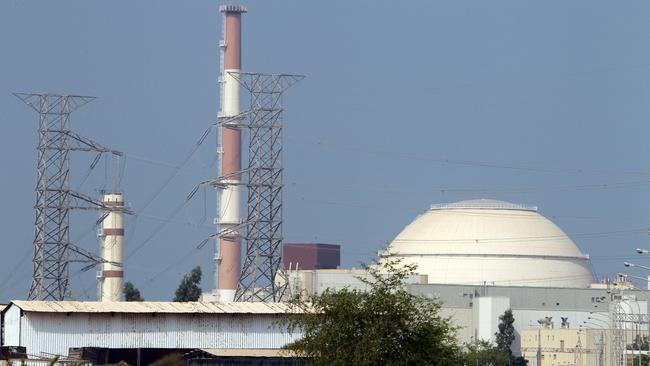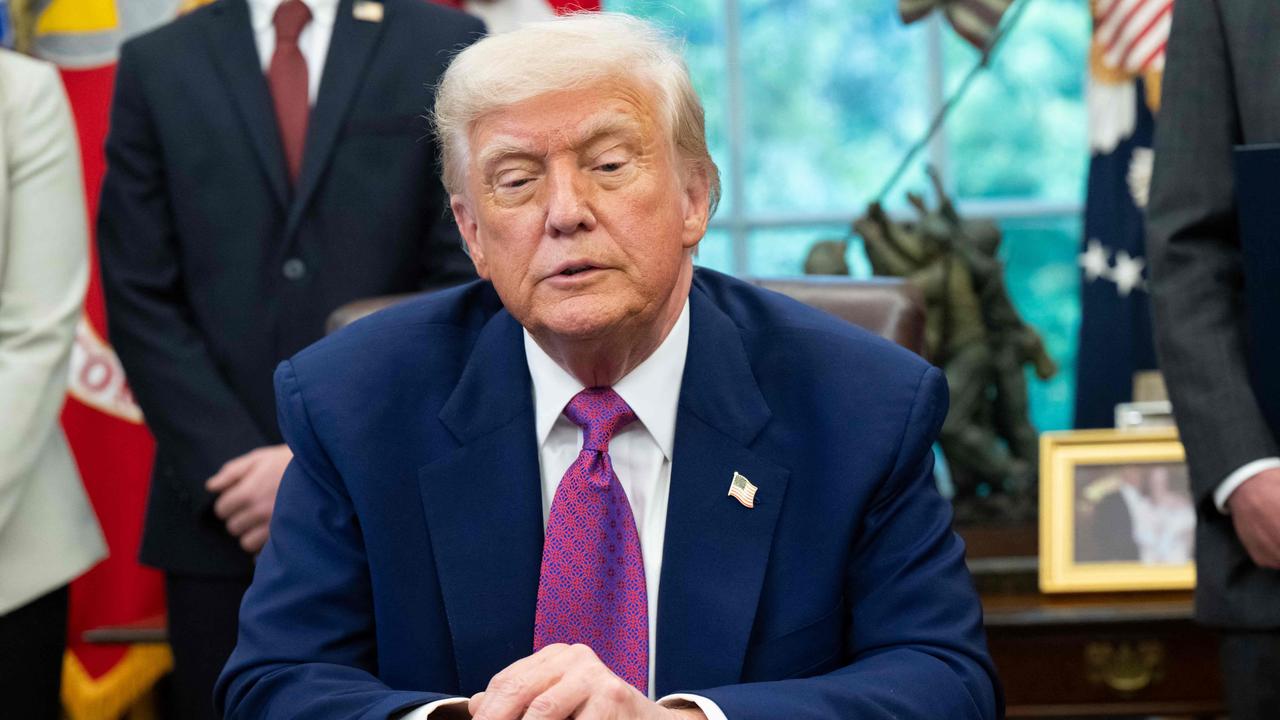Pompeo ends waivers for Iran nuclear deal
The US is ending waivers in sanctions for nations that remain in the Iran nuclear accord, bringing the deal closer to collapse.

The US is ending waivers for its sanctions for nations that remain in the Iran nuclear accord, bringing the deal further to the verge of collapse.
Secretary of State Mike Pompeo said on Thursday that Washington would stop allowing foreign companies to develop Iran’s civil nuclear activities, a core provision of the 2015 agreement.
Tehran has “continued its nuclear brinkmanship by expanding proliferation sensitive activities”, Mr Pompeo said.
The Trump administration withdrew from the agreement in May 2018 and has ratcheted up US sanctions against Iran while pressuring the remaining parties — China, France, Germany, Russia and Britain – to dismantle the deal entirely. The State Department has been urging the UN Security Council to renew a conventional weapons embargo against Iran that is set to expire in October.
Mr Pompeo said waivers that protect foreign firms from US sanctions for helping Iran convert its Arak reactor to produce less plutonium will expire in 60 days. So will the waivers for the provision of enriched uranium for the Tehran Research Reactor, and for importing Iran’s spent and scrapped research reactor fuel. He said the US was providing a 90-day extension to the waiver for work on the Bushehr Nuclear Power Plant over safety concerns, but warned that was dependent on Iran’s activities.
He also imposed sanctions against two officials of the Atomic Energy Organisation of Iran, Majid Agha’i and Amjad Sazgar, for working on weapons of mass destruction.
Opponents of the deal, known as the Joint Comprehensive Plan of Action, said continued waivers for work on Iran’s nuclear facilities would help Tehran safeguard key elements of the program as the temporary restrictions built into the agreement expired.
State Department officials framed the termination of the waivers as another step in the progression of the administration’s pressure campaign against Iran, and pointed to the country’s economic crisis as a bulwark against further escalation. Assistant Secretary of State Christopher Ford said Iran’s violations of the JCPOA had been measured in nature due to its desire to preserve the deal. Work to create a plutonium production reactor, by contrast, would be “an extraordinary provocation”, he said.
Critics of the US approach say it will prod Iran into quitting the accord, revving up its nuclear work and allowing the facilities to be retooled. European diplomats have lobbied Washington not to undercut provisions of the JCPOA designed to reduce Iran’s nuclear-proliferation threat.
Under the deal, Iran agreed to convert some of its most important nuclear facilities in ways that would curb Tehran’s pathway to a nuclear weapon through the production of enriched uranium or plutonium.
A waiver for foreign companies helping Iran to convert its underground Fordow uranium-enrichment facility had already been scrapped after Iran started enriching uranium there last year.
Under the 2015 deal, Iran agreed to convert its unfinished Arak heavy-water reactor to produce much less plutonium than initially planned. Experts from China and Britain have worked on the facility over the past six months. Experts say it would take Iran several years to complete the modernised design, which would produce a type of plutonium that might not be useful for nuclear weapons. However, they say it would likely take Iran just as long to return to the original design, which was supposed to produce sufficient plutonium for two to three nuclear weapons a year.
While Iran has stepped up its enrichment program in defiance of the deal over the past year, it has only produced enriched uranium up to 4.5 per cent — well short of the 90 per cent needed for weapons. But Iranian officials say they would increase the purity of enriched uranium if the country had any technical need. The scrapping of the waiver could give Tehran a rationale for once again enriching uranium to 20 per cent, which would represent a significant advance in Iran’s nuclear work.
The Wall Street Journal



To join the conversation, please log in. Don't have an account? Register
Join the conversation, you are commenting as Logout